#the freight trains
Explore tagged Tumblr posts
Text
Hydra appears to be the only freight who isn't a part of the main choreo of Wide Smile, and therefore, I raise the idea that he is the only one of them who's absolutely oblivious to Slicks work.
He walks onto the yard and goes, "Hey, did ye hear about the crash over by Barnhill? Pretty bad, they don't think they can be repaired."
Porter and Lumber side-eye Slick as if to say "That was you, wasn't it?" and Slick starts giggling.
Hydra is just left standing there in confusion because he's not in the know of what's going on.
#they all think its pretty funny to just watch his face contort in confusion#like he has literally no idea what they're laughing about#its just “why tf are yall laughing two trains just died?”#meanwhile porter and lumber are just sat there like “yeah we've known since slick got her payment.”#slick is pissing herself laughing#very much sibling behaviour#stex#starlight express#the freight trains#hydra the hydrogen tanker#slick the oil tanker#lumber the wood truck#porter the coal truck#stex 2024#starlight express london 2024#starlight express 2024
152 notes
·
View notes
Text


feeling extremely normal about these two
#i’m currently too deep in thesis hell to have time to draw anything other than quick sketches#but the hyperfixation hit me like a freight train#and has been gnawing on my synapses since the finale aired#arcane#jayvik#jayce talis#viktor arcane#jayvik fanart#arcane fanart
22K notes
·
View notes
Text
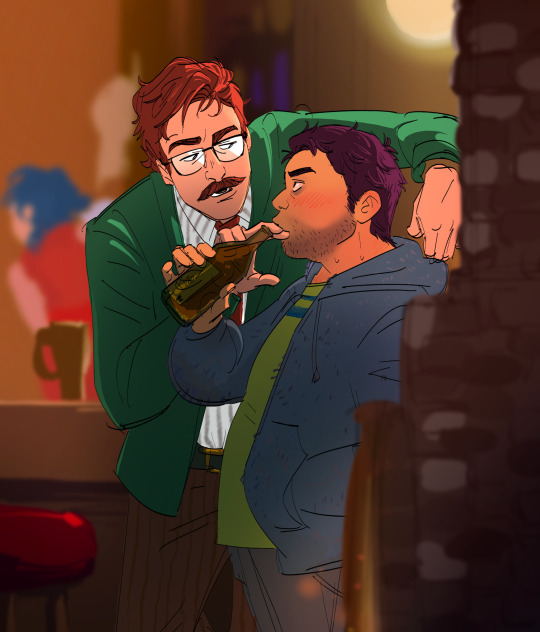
help
#So I finally picked up Stardew Valley#and this ship#yall#it hit like a freight train#harvey sdv#shane sdv#sharvey#stardew valley#stardrop saloon#well pickle my peppers and call me intrigued#anyway#HAAAAAAALP
1K notes
·
View notes
Text
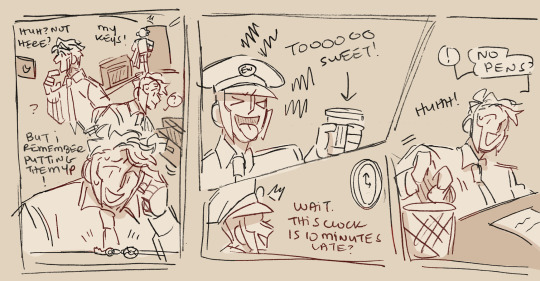

pranking your sibling beyond the grave
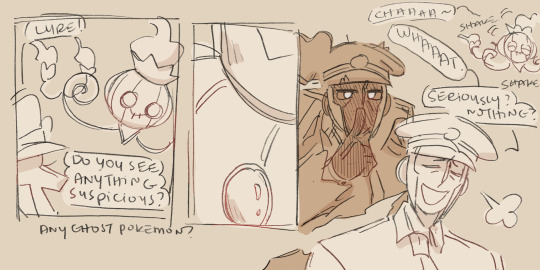
with an accomplice
#freight train au#submas#subway boss emmet#subway boss ingo#ingo#emmet#nobori#kudari#pokemon#pokemon fanart#fanart#tw implied death#pla
817 notes
·
View notes
Text
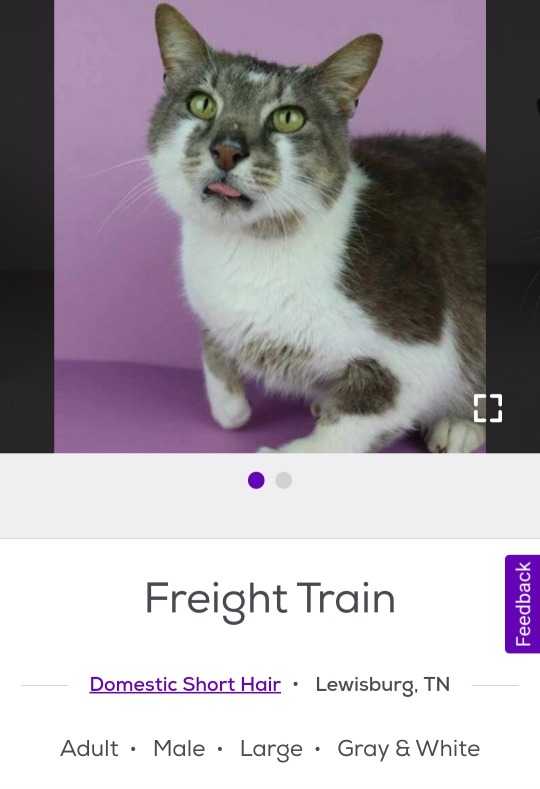
2K notes
·
View notes
Text


do you see the vision or am i insane
quote creds: oh darling, even rome fell// p.s (via madzie-bane)
#logan sargeant#max verstappen#ls2#mv1#this came to me like a vision#do you guys see it or no#i was in the middle of doing something else and this hit me like a freight train#web weaving#this is my first time doing this#comets web weaving
481 notes
·
View notes
Text
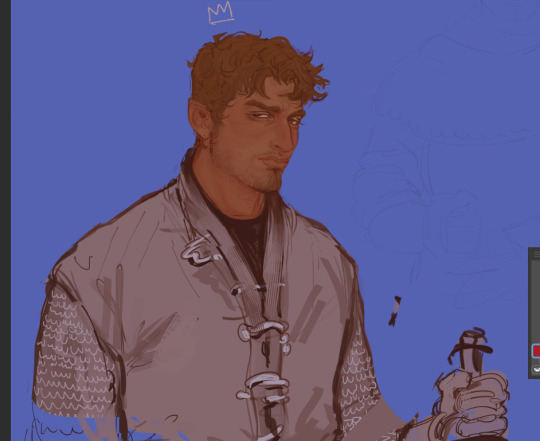
that guy from that game
1K notes
·
View notes
Text
reblog to have UNPROTECTED SEX with a GE AC44C6M

931 notes
·
View notes
Text


Personal monkey snoot tips and tricks for interested parties!🧡💜
#mmmm monkeee#hope this helps!#biggest recommendation is to take a look at refs and break them down from there too#sorry this took so long burnout hit me like a freight train#lmk wukong#lmk macaque#lmk#lego monkie kid
404 notes
·
View notes
Text
The toxic gossip train

#evil little fuckers#I love them#starlight express london 2024#starlight express london revival#starlight express revival#starlight express#starlight express cb#starlight express slick#red caboose#stex freight#stex 2024#stex london 2024#stex revival#stex cb#stex caboose#stex slick#stex slick oil#freight trains
354 notes
·
View notes
Text
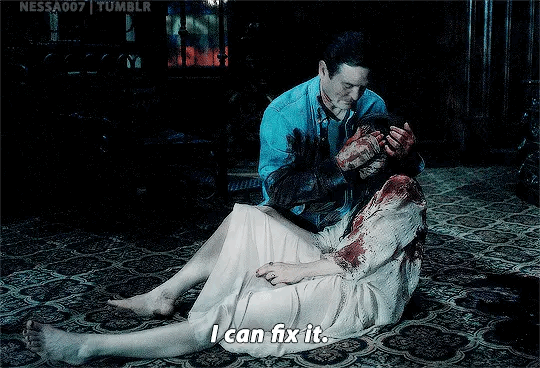
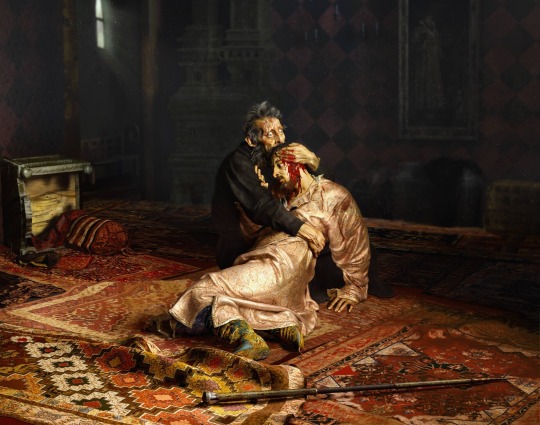
Journeys end in lovers’ meeting.
2018 // The Haunting of Hill House
1851 // Ivan the Terrible and His Son Ivan
#this parallel just hit me like a freight train#the haunting of hill house#web weaving#parallels#the fall of the house of usher#the haunting of bly manor#midnight mass#flanaganverse#edits#art#horror#mine
2K notes
·
View notes
Text
I'm not sure if trains have to eat, but if they do, I know right well that dinnertime at the Freight shed takes at least an hour every night.
First off, there's an argument every time over who has to set the table, which usually ends with Porter passive-aggressively slamming the cutlery against the table to let everybody in the shed know that he's the one who stepped up and did it.
Then dinner actually begins.
Rusty's always about fifteen minutes late to the meal cause he's out practising, and by the time he gets back, the others have eaten about half his food.
Slick uses like- half a bottle of ketchup and gets in trouble for using that much off Momma. Hydra starts gagging cause he can't stand the smell, and she jokingly shoves a piece of food covered in ketchup in his face and he almost gets sick.
Lumber and Porter start having a petty argument that ends in food being thrown, and Lumber spilling his drink everywhere.
Hydra starts yapping about hydrogen, and Lumber threatens to find a way to shove potatoes in his tank. That shuts him up for a while.
Slick starts at least one major argument a dinner by bringing up a topic none of them agree on that ends in everyone getting in a food fight, including Rusty and Momma. The reason for the argument is forgotten after about ten minutes.
Momma does make them all help clean up afterwards, or else they won't get any ice cream.
#the biology here doesnt make sense but its fine!#its just a fun headcanon#freight family dinners are a full blown event#just. everything is a mess but its a fun mess.#the topic they fight over is usually the races#they never agree on it#but they end up having so much fun with a food fight that they just completely forget#anyhoo#starlight express#stex#stex london 2024#the freight trains#momma mccoy#rusty the steam engine#porter the coal truck#lumber the wood truck#slick the oil tanker#hydra the hydrogen tanker#stex headcanons
135 notes
·
View notes
Text










hi guys i doodled starlight expressians 😲😲😲
#starlight express#belle the sleeping car#joule the dynamite truck#purse the money truck#krupp the armaments truck#volta the freezer truck#wrench the repair truck#poppa the steam engine#stex fanart#greaseball the diesel#dinah the dining car#rusty the steam engine#electra the electric engine#pearl the observation car#buffy the buffet car#ashley the smoking car#dustin the big hopper#flat top the brick truck#rocky 1#rocky 2#rocky 3#cb the red caboose#freight trains#coaches#gang
228 notes
·
View notes
Text

161 notes
·
View notes
Text


when the entity haunting you has a sense of humor
#month of emmet - day 11: photo#freight train au#submas#emmet#kudari#ingo#nobori#monthofemmet#pokemon#pokemon fanart#fanart#tw eye contact
2K notes
·
View notes
Text
*That* scene in Six Hundred Strike is not about vengeance, it's about vulnerability ... because the Vengeance saga isn't about vengeance
To think all of this started because I was trying to determine why it feels so natural to read intimacy into the torture scene in Six Hundred Strike ... See, I'm personally not someone who reads an angle like this into things easily, but this time I found myself doing it too. And I just needed to know why.
It just made no sense for a while, because if you look at it superficially, it shouldn't make sense; it's a freaking torture scene. But I don't know, somehow, I must have felt that there was something there ... and I think I figured it out.
See, the reason why it feels so natural to read intimacy into this scene is because ... it actually is incredibly intimate. Not in an actually sexual way, but more so in a, "Imagine you were suddenly able to read someone's mind, and they yours" kind of intimacy.
It's really easy to just assume Six Hundred Strike is literally about vengeance, but it isn't. Now, please stick with me for a bit because we are going on a bit of a tangent here, but I promise we'll get back to this eventually.
The tangent I want to explore first is (as you've probably seen in the title) that the whole Vengeance saga is, ironically, about the unnecessity of vengeance and how destructive grudges and resentment can be. Think about it:
In Not Sorry For Loving You, Odysseus lets Calypso rant and then walks away without confronting her or accusing her, even telling her what she wants to hear one last time. I already discussed why Odysseus is an incredibly non-judgmental, non-resentful person in my Monster essay, and here is another excellent example of that.
Charybdis (I'm skipping Dangerous because he doesn't encounter any enemies there) is the first "monster" enemy he leaves alive since Polyphemus (Scylla doesn't count because he still "kills" for the sake of getting past her, even if it's in the form of sacrificing his men.) While one might argue that he had no choice since Charybdis is virtually impossible to kill, I think placing this encounter here might be an intentional choice especially since it differs greatly from the way that Charybdis is in the Odyssey. There has to be reason behind this change.
In Get In The Water (my beloved 🫶) we are explicitly shown that Odysseus offers Poseidon (the god who killed his whole fleet and is responsible for most of his suffering) forgiveness. The reason Odysseus has to torture him in the first place is Poseidon's own refusal of this mercy—he's literally torturing Poseidon in order to make him finally release the grudge because he has proven that this is the only way to actually get through to him. It actually shows perfectly that Poseidon's own inability to release his resentment became his downfall in the end, disproving his own "ruthlessness is mercy upon ourselves" motto as his own ruthlessness bit him in the a** this time, as I talked about in this post.
... And there is no resentment or vengeance in Six Hundred Strike either.
On one hand, it's easy to assume phrases like "For every comrade, every one of my friends, almost all of whom were slaughtered by your hand" or "How does it feel to be helpless? How does it feel to know pain?" indicate resentment, but ... not really.
We already know that Odysseus doesn't want vengeance, or he wouldn't have tried to lead from the heart one song earlier.
And then make yourself aware of something else: Not once during any of their encounters is Odysseus actually accusing or resenting Poseidon for anything.
"Almost all of whom were slaughtered by your hand" is an objective fact. It's just true. Someone vengeful may have said "I'll make you pay for all of those you slaughtered" or "All of their deaths are your fault" ... Odysseus just says, "for every comrade". He doesn't specify what he's doing for his comrades ... and it sure as hell isn't that he's (trying to) cause Poseidon pain or harm for them (which would be vengeance.)
For every comrade, he is fighting Poseidon, in order to finally reach his goal. For every comrade, he's doing everything that he has to do in order to get home, and in order to end this feud.
And then we get to the torture scene and it's ... actually so incredibly freaking intimate. Because it's not actually about vengeance, it's not about accusing Poseidon, or making him pay, or suffer more than necessary. If Odysseus were speaking from a genuine vengeance angle, he'd probably sound more like, "You killed my friends, now you pay for it. You did this to me and now it is your time to suffer." But he doesn't.
The torture scene in Six Hundred Strike is actually ... just another, much more extreme, repeat of Odysseus' lines from Get In The Water (my beloved 🫶): "Aren't you tired, Poseidon? It's been ten years, how long will this go? We're both hurting from losses, so why not leave this here and just go home?"
Odysseus tried saying it nicely ... now he's stabbing him with his own trident, hoping, practically begging, that he finally listens and accepts. Just lets them both go home.
And the thing is, this time, he isn't just saying "we're both hurting from losses" ... All you have to do is repeat to yourself Odysseus' entire monologue that he unleashes while he's stabbing him in a calmer, gentler tone and you'll see that what he is actually yelling out at Poseidon are all of the reasons why he is hurting. Sharing with him all of the pain that he probably hasn't shared with anyone ... ever.
"How does it feel to be helpless? How does it feel to know pain?" -> How does it feel to be vulnerable? I've felt vulnerable for so long without anyone to talk to or because no one truly understood me or what I'm going through.
"I watched my friends die in horror, crying as they were all slain. I heard their final moments, calling their captain in vain." -> This is why I am hurting. These are my losses.
"Look what you turned me into. Look what we've become." -> Look what I could be if I actually followed your lessons. Is this what you really want? Why can't you understand the harm that this is causing both of us?
"All of the pain that I've been through ... haven't I suffered enough?" -> Aren't you tired, Poseidon? It's been ten years, how long will this go? We're both hurting from losses, so why not leave this here and just go home?"
"You didn't stop when I begged you." -> I asked you to "Stop this, please" mere minutes ago. You didn't stop. That's why I'm doing this.
"(You) told me to close my heart. You said the world is dark. Didn't you say that ruthlessness is mercy?" -> I'm doing what you said you wanted me to do. Do you really want this? Do you really believe this? Can something like this really be mercy?
The first time I heard this, I firmly believed that Odysseus was actually crying during this part, and honestly, I believe that to this day. The canon visuals don't show us his face and I want to almost say that's intentional.
This whole scene is about vulnerability. Forced vulnerability, in a lot of ways, but raw, real vulnerability nonetheless.
This isn't just a torture scene; it's actually one of the most intimate scenes we've ever seen Odysseus share with anyone on screen. Seldom do we see him this honest in front of others (the vulnerable scene with Circe at the end of There Are Other Ways is the only other example I can think of.) Otherwise, all of his honest, raw songs are his solo songs (Monster, Just A Man, ...)
But here, Odysseus is essentially using the symbol of Poseidon's invulnerability—his trident—to force him into the most vulnerable position that he's probably been in centuries, if not ever ... and at the same time, he is being incredibly vulnerable himself. He's opening up to Poseidon in a kind of absolute way that we have actually never seen him open up to anyone.
... If that is not intimacy in its rawest, most painful, uncomfortable, and yet cathartic forms, I don't know what is.
As if that weren't sad enough... The saddest part about all of this is actually Poseidon's "Monster!" ... Because it tells us without a doubt that he is actually incapable of receiving or understanding those words from Get In The Water (my beloved 🫶). He is incapable of understanding vulnerability. All he can see is the "monstrous" act that accompanies it because that is something he knows and recognizes.
Although I believe, in the end, Odysseus did get through to him, and did get him to drop the grudge, I believe it happened on a kind of subconscious level rather than genuine acknowledgment or agreement. It's further proof of how Odysseus is capable of growth while Poseidon isn't (yet.)
Poseidon remains stuck in his ways, in his "ruthlessness" philosophy, because he isn't ready to acknowledge its flawed nature, essentially making it his own cage that prevents him from growing or moving forward. Meanwhile, Odysseus is walking away, walking ahead.
... Part of me almost wants to claim that he started begging Odysseus to stop so quickly not because of the physical pain, but because of his words. Because the vulnerability forced on him was hurting in a way that physical injuries, even from his own trident, never could. Because deep down, very deep down, he must've ... "felt" what Odysseus wanted him to understand and feel anyway.
Remember how I compared this type of intimacy to the sudden ability to read someone's mind before? I chose this analogy for a reason. What is intimacy if not using the very source of a god's invulnerability, essentially putting yourself into his divine shoes, doing what you know he would do to you ... in order to force him to connect to your mortal feelings and pains, even if he can still not truly understand them?
Here is where we see, for the first time, maybe ever, what even Odysseus and Athena couldn't do (yet), and the core reason why their partnership broke apart: a mortal and a divine genuinely understood each other's perspectives ... saw themselves in the other, even if only for a moment.
Given all that ... there is absolutely nothing I can say against kicking my feet and giggling excitedly over this scene.
#guys i already loved this song you didnt have to make me love it even more#so this is why i had a feeling™ about this scene all along#because i do i just cant explain it right away#and eventually it hits me like a freight train#i guess that's today#how do i just know#epic the musical#epic musical#jorge rivera herrans#epic odysseus#six hundred strike#get in the water#epic poseidon#odysseus epic#epic the troy saga#epic the cyclops saga#epic the ocean saga#epic the circe saga#epic the underworld saga#epic the thunder saga#epic the wisdom saga#epic the vengeance saga#epic the ithaca saga#epicssay
153 notes
·
View notes